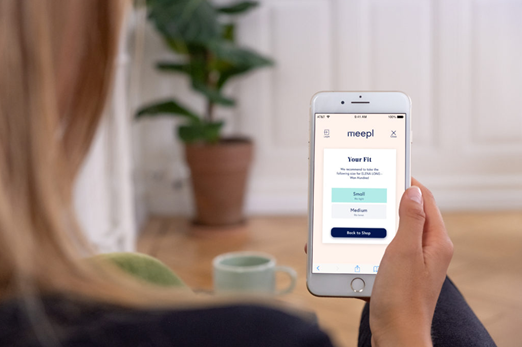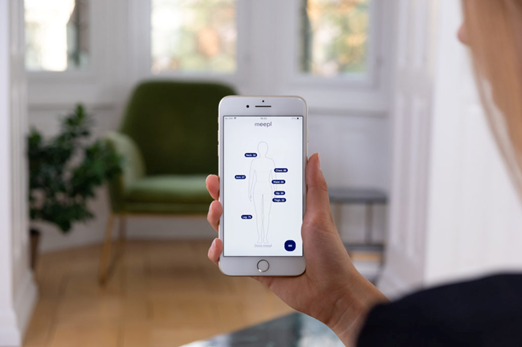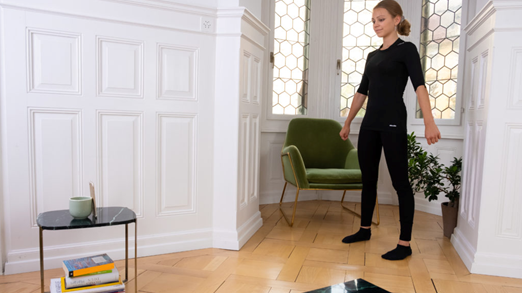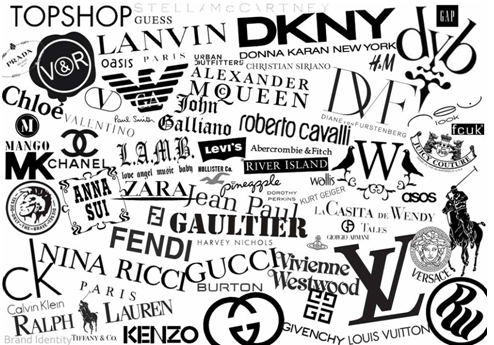

HOW MADE-TO-MEASURE TECHNOLOGY HELPS FASHION BRANDS BECOME MORE SUSTAINABLE
The fashion industry is one that naturally evolves – not only to meet supply and demand, but to keep up with shifting trends and to also stand out from competition.
This is going to be truer than ever with the long term repercussions of COVID 19. And yet, throughout its many waves of evolution, fundamental problems around size and sustainability persist.
In more recent years, technology has played a role in developing size-inclusive solutions and sustainable practices, but consumers are still being presented with frustrating sizing standards and disposable purchases. In today’s age, that is largely thanks to the ever-popular, ever-accessible fast fashion.
Over-production within the fashion industry is a real problem. In fact it remains one of the fashion ecosystem’s costliest and most environmentally damaging contributors. Each year, 12.8 million tons of clothing is sent to landfills and over 50 percent of fast fashion produced is disposed of in under a year.
Production of clothes at this level is cited as having a catastrophic impact on the environment. A United Nations report says that we are on track to increase the world’s temperature by 2.7 degrees by 2040, resulting in devastating consequences. Fashion brands – as well as other industries – must take responsibility by supporting consumers in purchasing less by implementing techniques and rethinking fundamentals.

Brands step in the right direction
Over the past few years, several fashion brands have announced changes to mitigate their contribution to the environmental damage.
Zara has pledged that 100 percent of cotton, linen and polyester will be sustainable by 2025, and 100 percent of viscose by 2023. ASOS announced its commitment to train their teams about circular design this year, as well as launch recycling programmes in the UK and Germany.
While these are all baby steps in the right direction, one of the underlying issue remains: brands are still overproducing. Especially in e-commerce, where there is a mismatch between real demand and supply, due to the lack of sizing standards. It should not be the norm for consumers to purchase an item in multiple sizes to ensure one of them fits, but this has become a worrying reality.
My belief is that over-production – or ‘deadstock’ as the industry is referring to it – can be decreased if brands stop designing and producing garments for what is considered the ‘standard’ body shape.
Enter the made-to-measure business model. The industry is seeing an influx of tech start-ups, including who are offering fashion brands a solution to selling made-to-measure garments online.
Research from GlobalData has highlighted that more than half of UK consumers are now shopping online and UK online spend is forecast to increase 29.6 percent between now and 2024. With this shift in consumers turning to online shopping predominantly for the variety, the competitive cost and convenience, this type of technology can be hugely powerful.
Producing on demand is not only going to help brands become more sustainable, which consumers care about with web searches for “sustainable fashion” having risen by 66 percent, but it will give them confidence in their online shopping experience.

How technology can help brands scale up
The good news is fashion brands are already using technologies to scale up their offering, with household designer names getting on-board with next gen tech & Web3 tools that will help them improve the online customer experience.
Using technology such as Artificial Intelligence (AI) or 3D body scanning permits businesses to create a whole new business model. Traditionally, a made-to-measure garment is created by having the consumer visit a brick and mortar store, meet the tailor and be measured, manually. More recently consumers have been able to supply their measurements using a tape measure and share it with a website. It’s a step in the right direction but there are inefficiencies with this method. It is a) inconvenient for the client and b) inaccurate because the measurements are not being recorded by a professional.
The use of a mobile 3D body scanner removes a lot of these inefficiencies, making it super easy for the consumer to share their body data as accurately and automated as possible allowing brands to offer: made-to-measure, size recommendations, virtual dressing rooms and advanced body analytics.
Technologies like this helps the consumer find the perfect fit, helping reduce the purchase of more than one size, returns and landfill!

What does the future hold?
At present, supply is far higher than the demand. Technology will play a prominent part in helping to eradicate this. COVID-19 has had one positive effect – out of necessity, many fashion brands accelerated their innovation and digitisation strategies in order to work more efficiently and meet the needs and concerns of their customers.
Within the next ten years, I believe those with a smartphone will have their own 3D body profile stored in the Cloud, which can be located for many application scenarios. The accuracy of measurements will continue to improve and in as little as a few years time, we will be seeing brands offer the opportunity for end-users to customise their very own garments, from the cut, to the material, which is hugely exciting.
By Rene Stampfl
At Fashion Angel we offer fashion business mentoring, events, workshops and access to start up loan funding to fashion start-ups and established fashion business entrepreneurs. We are here to help and to give you the support you need at all stages of your business journey.
Our expert mentors can give you guidance with our 1-2-1 business mentoring packages. Fashion Angel Business Club members receive 20% discount on our mentoring and events and have access to FREE downloadable toolkits, a suppliers directory & other benefits, all tailored for the fashion industry.


